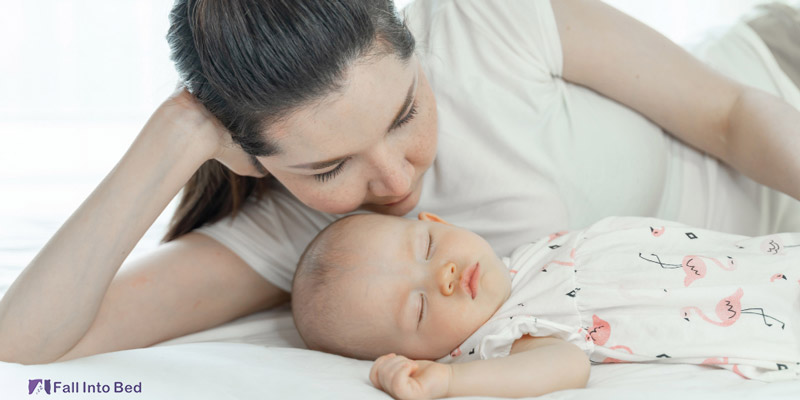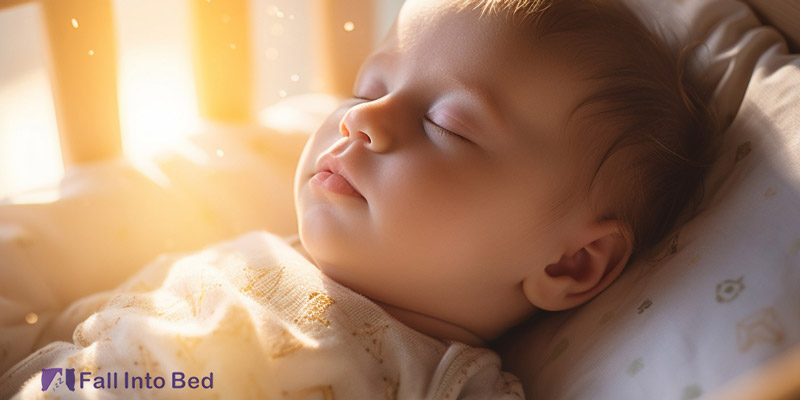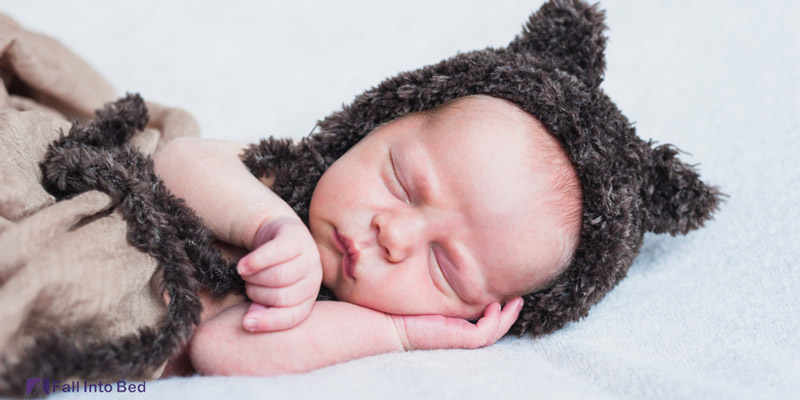Figuring out babies’ sleep schedule and sleep stages can feel like cracking the world’s toughest puzzle. Just when you think you’ve got it, they switch it up! But behind all those naps and night-time wake-ups is a fascinating process that’s crucial for their development. From brain growth to learning new skills, their ever-changing sleep cycle plays a key role in helping them grow.
How Is an Infant’s Sleep Schedule Different From an Adult’s?
Sleep stages in adults and babies have several differences. Usually, adults sleep for 7-9 hours a day. Whereas new-born babies need to sleep for 18 hours, broken into short naps. When babies get to 6 months old, they still need about 13-14 hours of rest every day. So, it’s normal for babies and adults to have different sleep cycles.
Also, the amount of time babies spend in each stage is different from grown-ups. So, let’s talk about a typical sleep cycle for your little one.
What Does a Baby’s Sleep Cycle Look Like?
Babies’ sleep cycle has 4 stages, just like grown-ups’ cycle, which are either REM (rapid eye movement) or NREM (non rapid eye movement):
Stage 1(NREM):
In this stage, sleep is very light and the baby can easily wake up. The body and brain begin to slow down, but they may still show movement like twitching or slight eye movement. This stage is short and acts as the transition between being awake and falling into deeper sleep.

Stage 2(NREM):
In the second stage, sleep is still light, though not as light as the first stage. Body temperature drops, and heartrate and breathing slow down. This stage is longer than
Stage 3(NREM):
This is the deepest stage of sleep. Babies are hard to wake, and their breathing is regular. Growth, physical repair, and immune system strengthening occur in this stage.
The third stage becomes longer as babies grow older and need more restorative sleep.
Stage 4(REM):
REM sleep is a lighter sleep stage where most of the dreaming occurs. Babies may move, twitch, or make noises. Their eyes move rapidly under the eyelids, and their breathing becomes irregular.
New-borns spend around 50% of their sleep in REM, but by the time they’re 1 year old, this decreases to around 30%.
What is REM and NREM?
NREM Sleep (Non-Rapid Eye Movement Sleep) For babies, is the calm, restorative part of sleep. It helps their little bodies grow and recover. During NREM, a baby’s heart rate slows down, and their breathing becomes steady. This is when their body works on important things like building muscles, tissues, and making their immune system stronger. Babies start with more light sleep, but as they grow, they spend more time in the deep, restful stage of NREM, which helps them feel refreshed and supports their physical development.

REM Sleep (Rapid Eye Movement Sleep) REM sleep, on the other hand, is where a baby’s brain gets busy. During REM, their eyes move quickly under their eyelids, and their brain is active, helping with memory and learning. This is also the stage where babies dream! Even though their body stays still, their mind is exploring new information, processing emotions, and making sense of all the new things they’ve experienced. REM sleep also has positive effects on developmental milestones.
Babies spend a lot of time in REM sleep, especially when they’re new-borns, since it helps their brains develop rapidly. Both NREM and REM are vital for babies, helping their bodies grow strong and their minds stay sharp.
Does sleep stages change as babies grow?
Birth to 3 months
new-borns’ sleep cycle is around 40-50 minutes, which is way shorter that an adult’s 90-mintue cycle. During this age, babies spend half of their cycle in REM sleep and they spend less time in NREM sleep compared to older children
3 to 12 months
As babies grow, their’ sleep cycle gets longer and reach about 70-80 minutes. They start spending more time in non-REM sleep, which is deeper and more restful.
By 6-12 months, many babies begin sleeping for longer stretches at night, and daytime naps and their sleep schedule become more predictable unless they’re in their sleep regression phase.
Sometimes, other factors can affect your baby’s sleep cycle and pattern. For instance, during teething, sleep can be affected.
Under 12 months, babies are at risk of SIDS (sudden infant death syndrome). One of the ways you can significantly reduce the risk, is to adjust your baby’s sleep position to back sleeping.

1 to 3 years
By this stage, the sleep cycle is closer to an adult’s, lasting around 90 minutes. New-borns wake frequently, while older babies and toddlers tend to sleep for longer stretches, especially at night. You can also introduce stuffed animals to sleep with, to them to help them have longer and deeper sleep during the night.
Like we mentioned, compared to new-borns, toddlers spend more time in non-REM sleep.
Navigating a baby’s sleep cycle can feel a bit like trying to decode a secret language, one moment they’re out cold, and the next, they’re wide awake at 3 a.m., ready to party. But behind those unpredictable patterns is something incredible happening. Babies go through shorter, more active sleep cycles than adults, and all that tossing, turning, and dream-time is actually helping their little brains grow.
As they get older, their sleep patterns shift, giving their bodies more time to rest and repair. So, while it may seem like they’re just mastering the art of mid-nap wake-ups, they’re actually busy hitting those all-important developmental milestones 😉
FAQ about babies’ sleep stages
How long is a baby’s sleep cycle?
A newborn’s sleep cycle is about 50-60 minutes. As they grow older, their cycles lengthen to 70-90 minutes by the time they’re a year old.
why do new-borns wake up so often?
Infants spend half of their sleep in REM sleep which is light sleep. This means they wake up more easily. They also have shorter sleep cycles, causing frequent waking for feeding and comfort.
When do babies start sleeping through the night?
By 6-12 months, many babies can sleep for longer stretches at night, though waking up occasionally is still normal. This is due to their developing ability to go through multiple sleep cycles without fully waking.
Why is REM sleep very important for babies?
REM sleep is crucial for brain development, learning, and memory. Since babies are constantly learning new things, their brains are active during REM, helping them process and store new information.








